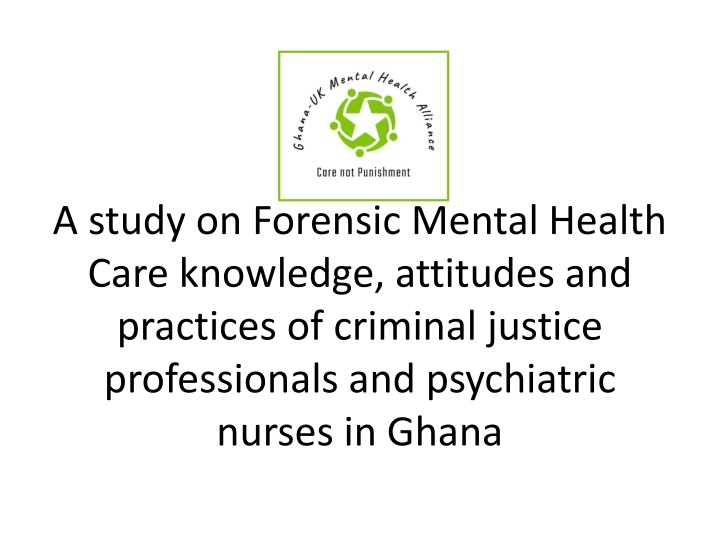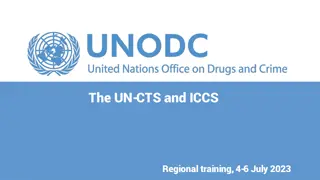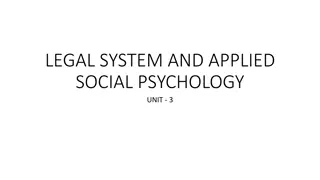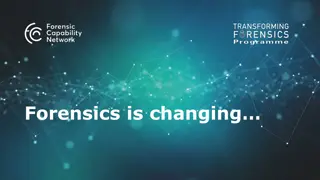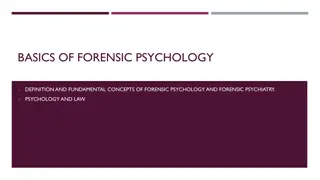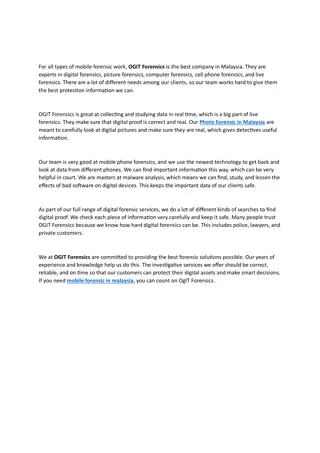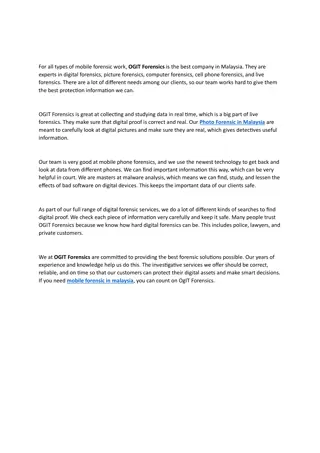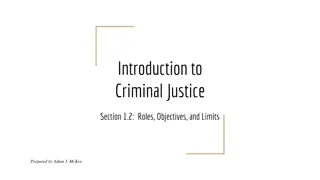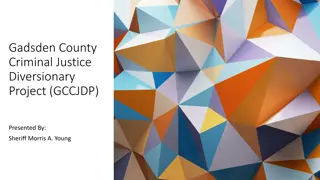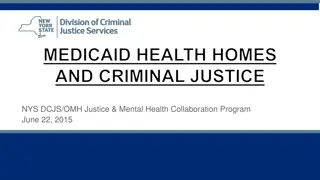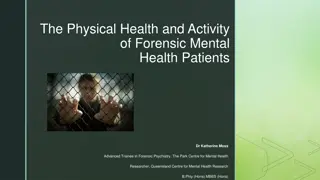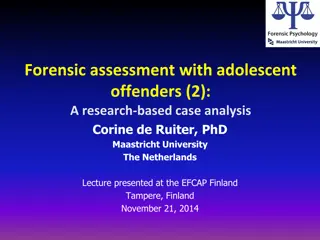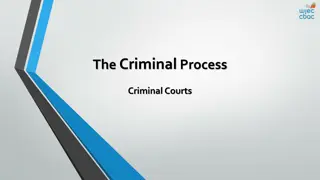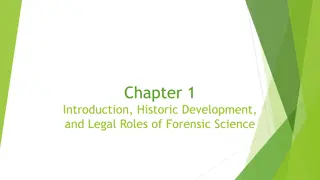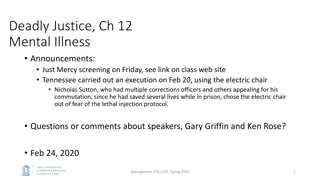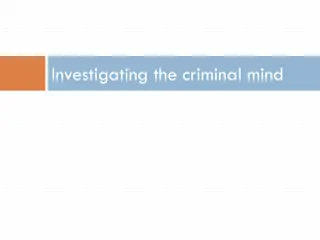Study on Forensic Mental Health Care Among Criminal Justice Professionals in Ghana
This study delves into forensic mental health care knowledge, attitudes, and practices among criminal justice professionals and psychiatric nurses in Ghana. The research sheds light on the Ghana-UK Mental Health Alliance, findings, and the approach taken, focusing on forensic psychiatry and implications for adult psychiatry, prisons, courts, and police services.
Download Presentation

Please find below an Image/Link to download the presentation.
The content on the website is provided AS IS for your information and personal use only. It may not be sold, licensed, or shared on other websites without obtaining consent from the author.If you encounter any issues during the download, it is possible that the publisher has removed the file from their server.
You are allowed to download the files provided on this website for personal or commercial use, subject to the condition that they are used lawfully. All files are the property of their respective owners.
The content on the website is provided AS IS for your information and personal use only. It may not be sold, licensed, or shared on other websites without obtaining consent from the author.
E N D
Presentation Transcript
A study on Forensic Mental Health Care knowledge, attitudes and practices of criminal justice professionals and psychiatric nurses in Ghana
Charles Acheampong Peter Hasler Rita De-Graft
Content What is Forensic Mental Health What is the Ghana-UK Mental Health Alliance The Approach we have taken Findings Delivery model Discussions and intelligence
Forensic Mental Health (Psychiatry) Forensic Psychiatry is a specialty within psychiatry concerned with helping people who have mental disorder and who present a significant risk to the public. Royal College of Psychiatry
Adult Psychiatry Prisons Forensic Mental Health Courts Police
Project Group David Adjei Maryland Ocansey Rita De-Graft Matthew Agbolegbe Sam Adoagye Peter Hasler Charles Acheampong
Approach Taken To establish a baseline we have carried out interviews with:- Police Officers Prison Staff Criminal Justice staff (in progress) Mental Health Nurses (in progress)
Findings (so far) Police (sample 16) 100% had no training in mental health 62% would try to move someone to a psychiatric hospital (if acutely mentally ill) Top 3 suggestions for improvements:- 50% wanted access to a mental health nurse (liaison nurse) 43% would want training to support prisoners 37% would like a safe place in the community
Findings Prison staff (sample 29) 41% had received short training sessions with the psychiatrist Top suggestions for improvement: 82% of officers would welcome training 65% said there should be nurses and more Doctors in the prison 75% would like to see a community provision for moving on.
Ghana-UK Mental Health Alliance Supporting Mental Health and Criminal Justice Services in Ghana STAGE 1 STAGE 3 STAGE 2 Support for the Police Community Support Support for Prisons Work with an existing NGO Identify a building Establish a day programme around life skills and employment Alternative to prison Baseline questionnaire Identifying a prison wing Classify to a Health Wing Training and support programme Baseline questionnaire Mental Health Awareness training Roll out programme On-going support Evaluate Evaluate Evaluate YEAR 1 (2018-19) YEAR 2 (2019-20) YEAR 3 (2020 onward)
Your questions help and advice
References Roberts M., Morgan C., Asare J.B., (2014) An Overview of Ghana s mental health system: results from an assessment using the World Health Organisation s Assessment Instrument for Mental Health Systems (WHO-AIMS) International Journal of Mental Health Systems, 8,16 The Mental Health system in Ghana (2013, Kintampo Project/Ministry of Health Key Informants interviews, November 2017
Funding Solutions Ultimately the Ghana Government will need to make adequate provision as a % of GDP for mental health. In the shorter term project funding is being explored to run the model in one geography in Accra- one police station and one prison.
